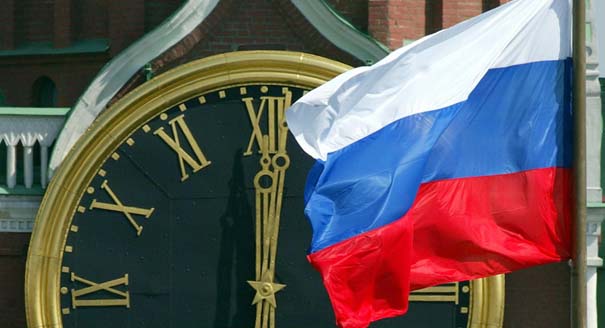Dmitri Trenin, director of Carnegie’s Moscow office, kicked off a lively debate on Friday with his blog on the future of Europe’s relations with Russia. On Monday, Strategic Europe ran a particularly trenchant comment by former U.S. ambassador John Kornblum. Today, it is Trenin answering back to Kornblum. Europe, Trenin writes, needs practice in getting together a foreign policy strategy. Russia is a relatively easy case and may allow Europe to move on to India and China later. Strategic Europe has decided to publish Trenin’s new contribution.
Dear John,
Your deep and well-articulated thoughts provide a wholly new dimension to the United States/Europe-Russia conundrum. Few people make their points as candidly and clearly as you do.
From a distance, I, too, can feel the malaise that has affected policy makers in the United States and Europe. Of course, I defer to you on that point. Yet I cannot help noting that the great achievements of Western policy in the previous century took place at a time when political leadership was a palpable thing, and democratic polities were led by self-confident elites. This did not offer protection against mistakes, or even blunders, but it offered a sense of direction and was generally propitious for strategizing. Of course, the dual threat of communism at home and the Soviet Union at the gates helped.
I do not want to praise the democracies of the 1930s in the United States and of the 1950s and 1960s in Western Europe—I can imagine what Freedom House would say of them today—but I agree with you that the great progress achieved in the area of human freedom and prosperity has not been matched by a rise in the sense of civic duties and responsibilities. This situation has reduced leadership to the role of acceding popular demands for more gravy, as you put it. In an environment where even war has become a matter for professional soldiers to manage —like fire fighters—budgets are, as you point out, the only thing that leaders can do.
I think, however, that this period of happy and blissful irresponsibility is coming to an end. The situation in Europe is such that very serious and fundamental decisions about the way the place is organized and run will have to be taken within a decade. Developments on Europe's doorstep, from North Africa to the Middle East, will put even more pressure on American and European foreign policy. Under these circumstances, lacking a strategy will be a losing proposition. Much as I am committed to democratic values, norms, and principles, I see an important role here that only the elites can fulfill. And I want those elites to rediscover and redefine themselves; shake themselves up, and awaken to the new realities at home and globally. Necessity is the best and often the only argument for moving forward.
I have never pretended that Russia could or should be at the center of U.S. or—when and if this takes shape—EU strategy. For the first half of the 21st century at least, Russia is likely to be a peripheral actor on the world scene. I actually find this to be good for Russia: its people need time to do their huge homework. I also find it positive that Russians in their post-imperial phase are almost entirely focused on their domestic affairs, no longer able or willing to impose themselves on others. The Eurasian Union will only work to the extent that all participants want it to work. Which means that it probably will be a rather modest undertaking.
Russia's peripheral status, however, is not limited to geopolitics. Not just Germany, but Finland, too, is focused more on China than on Russia. Eurasia's economic axis does not run along the Trans-Siberian, but rather along Central Asia, the Gulf and Turkey. As you correctly point out, not only are the United States and Europe coming together to form, over time, an economic mega-entity; so are China and Europe; and America and China. Russian leaders should be thinking much harder about the strategic implications of this development than they apparently are, and much more clearly. I could say a lot about that, but will resist the temptation for the moment.
When I was calling for a European strategy toward Russia, I stopped being analytical, of course. This was a plea with Europe's interests in mind. I was basically saying: if you want to be a strategic player—I do not know if you really do, but I think it would be good for the world if that actually happened—then this is your opportunity. It is much easier to deal with a country that, while qualifying as big, is much smaller than the European Union in economic and demographic terms. Also, Russia is essentially still led by one leader perfectly known to the Europeans. Whatever their attitudes toward him may be, this makes the task much easier than dealing with just about any other power in the world. If the Europeans can "do" Russia, they may be inspired to move to the next stage and deal with India, and eventually China. If they cannot do Russia, on the other hand, what can they hope for in terms of a common foreign policy? They would have to continue to rely on the United States, a power which seems to be both overburdened and under-resourced.
Once again, I thank you for your thoughts.
Best,
Dmitri Trenin






%20CROP.jpg)